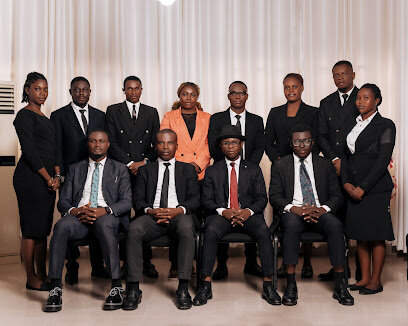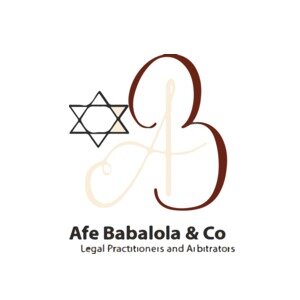Best Criminal Litigation Lawyers in Lagos
Share your needs with us, get contacted by law firms.
Free. Takes 2 min.
List of the best lawyers in Lagos, Nigeria
Legal guides written by Adeola Oyinlade & Co:
- Procedure and Requirements for Work Permit and Visas in Nigeria
- The Step-By-Step Procedure of How to Apply for Microfinance Bank License Online in Nigeria
- How to Ensure the Smooth Recognition and Enforcement of Foreign Judgments in Nigeria
Nigeria Criminal Litigation Legal Questions answered by Lawyers
Browse our 4 legal questions about Criminal Litigation in Nigeria and read the lawyer answers, or ask your own questions for free.
- Can I work No case to answer on kidnappin and arm robbery?
- Can I work No case to answer over a case that is said to come out for plea on next month 10th? Though,the case is already at the high court.
-
Lawyer answer by Nomos Legal Practice
Hello and thank you for contacting SK Solicitors, a full service law firm based in Lagos, Nigeria. Kindly let us know how we can help you to solve your legal needs and before we can render legal advice service, you...
Read full answer - Seized car
- A friend just seized my car , saying that he will Release it at his own time , but I need my car back as soon as possible
-
Lawyer answer by Nomos Legal Practice
Hello and thank you for contacting SK Solicitors, a full service law firm based in Lagos, Nigeria. Kindly let us know how we can help you to solve your legal needs and before we can render legal advice service, you...
Read full answer - About Gun
- What happens when a gun is thrown to me in a scene
-
Lawyer answer by Nomos Legal Practice
Hello and thank you for contacting SK Solicitors, a full service law firm based in Lagos, Nigeria. Kindly let us know how we can help you to solve your legal needs and before we can render legal advice service, you...
Read full answer
About Criminal Litigation Law in Lagos, Nigeria:
Criminal litigation law in Lagos, Nigeria refers to the legal framework that governs criminal offenses and the process of addressing them through the court system in Lagos. It involves prosecuting individuals accused of committing crimes and defending those who have been charged. Criminal litigation is a complex area of law that requires a deep understanding of the Nigerian legal system and the specific laws applicable in Lagos. It is essential to seek the assistance of an experienced lawyer to navigate through the intricacies of criminal litigation processes.
Why You May Need a Lawyer:
There are several situations where you may require legal help in criminal litigation:
1. Arrest or Detention: If you have been arrested or detained, it is crucial to have a lawyer present to protect your rights and ensure that proper procedures are followed.
2. Criminal Charges: If you have been charged with a criminal offense, a lawyer can help build a strong defense, gather evidence, and represent you in court.
3. Legal Advice: Whether you are a victim, witness, or suspect, consulting with a lawyer can provide valuable advice on your rights, possible outcomes, and legal options.
4. Plea Bargaining: If you are considering pleading guilty or negotiating a plea bargain, a lawyer can advocate on your behalf and help secure the best possible outcome.
5. Appeals and Post-Conviction Matters: If you have been convicted of a crime and wish to file an appeal or address post-conviction matters, a lawyer can guide you through the complex procedures.
Local Laws Overview:
In Lagos, Nigeria, criminal litigation is primarily governed by the Criminal Procedure Law of Lagos State, 2015. This law sets out the rules and procedures to be followed during criminal trials. Some key aspects of local laws relevant to criminal litigation in Lagos include:
1. Arrest and Detention: The law outlines the conditions under which a person can be arrested, the procedures for detention, and the duration of detention without charge.
2. Bail: The law provides for the granting of bail to an accused person, either at the police station or by a court, depending on the seriousness of the offense.
3. Trial Process: The law details the process of criminal trials, including arraignments, examination of witnesses, presentation of evidence, and cross-examination.
4. Sentencing: The law sets out the penalties for different offenses and provides guidelines for judges to consider when determining the appropriate sentence.
5. Appeals: The law allows for appeals to be filed against both conviction and sentence, providing a mechanism for reviewing decisions made at trial.
Frequently Asked Questions:
Q: How long does a criminal trial in Lagos typically take?
A: The duration of a criminal trial can vary depending on the complexity of the case and the backlog of cases in the court. Some trials may take months or even years to conclude.
Q: Can I change my lawyer during the criminal litigation process?
A: Yes, you have the right to change your lawyer at any stage of the process if you are not satisfied with their representation. However, it is important to consider the implications and potential delays that may arise from such a change.
Q: What rights do I have if I am arrested in Lagos?
A: If you are arrested, you have the right to remain silent, the right to legal representation, the right to be informed of the reason for your arrest, and the right to be brought before a court within a reasonable time.
Q: How can I find a competent criminal litigation lawyer in Lagos?
A: You can find a competent lawyer by seeking referrals from trusted individuals, contacting the Nigerian Bar Association (NBA) in Lagos for recommendations, or consulting legal directories and online platforms that provide lawyer listings.
Q: What factors do judges consider when determining bail applications in Lagos?
A: Judges consider various factors, including the seriousness of the offense, the likelihood of the accused person absconding, the strength of the evidence against the accused, the likelihood of interference with witnesses, and the ability of the accused to provide sureties.
Additional Resources:
Below are some resources that can be helpful for someone in need of legal advice in criminal litigation:
- Nigerian Bar Association, Lagos Branch: nbalagos.org
- Lagos State Ministry of Justice: justice.lagosstate.gov.ng
- Legal Aid Council, Lagos State: legalaidcouncil.gov.ng
Next Steps:
If you need legal assistance in criminal litigation in Lagos, it is advisable to:
1. Gather all relevant documents and information related to your case.
2. Research and identify experienced criminal litigation lawyers in Lagos.
3. Schedule consultations with potential lawyers to discuss your case.
4. Evaluate their expertise, track record, and fees.
5. Select a lawyer who best meets your needs and proceed with engaging their services.
Remember to provide all necessary details to your chosen lawyer to enable them to provide the best legal advice and representation.
Lawzana helps you find the best lawyers and law firms in Lagos through a curated and pre-screened list of qualified legal professionals. Our platform offers rankings and detailed profiles of attorneys and law firms, allowing you to compare based on practice areas, including Criminal Litigation, experience, and client feedback.
Each profile includes a description of the firm's areas of practice, client reviews, team members and partners, year of establishment, spoken languages, office locations, contact information, social media presence, and any published articles or resources. Most firms on our platform speak English and are experienced in both local and international legal matters.
Get a quote from top-rated law firms in Lagos, Nigeria — quickly, securely, and without unnecessary hassle.
Disclaimer:
The information provided on this page is for general informational purposes only and does not constitute legal advice. While we strive to ensure the accuracy and relevance of the content, legal information may change over time, and interpretations of the law can vary. You should always consult with a qualified legal professional for advice specific to your situation.
We disclaim all liability for actions taken or not taken based on the content of this page. If you believe any information is incorrect or outdated, please contact us, and we will review and update it where appropriate.

















